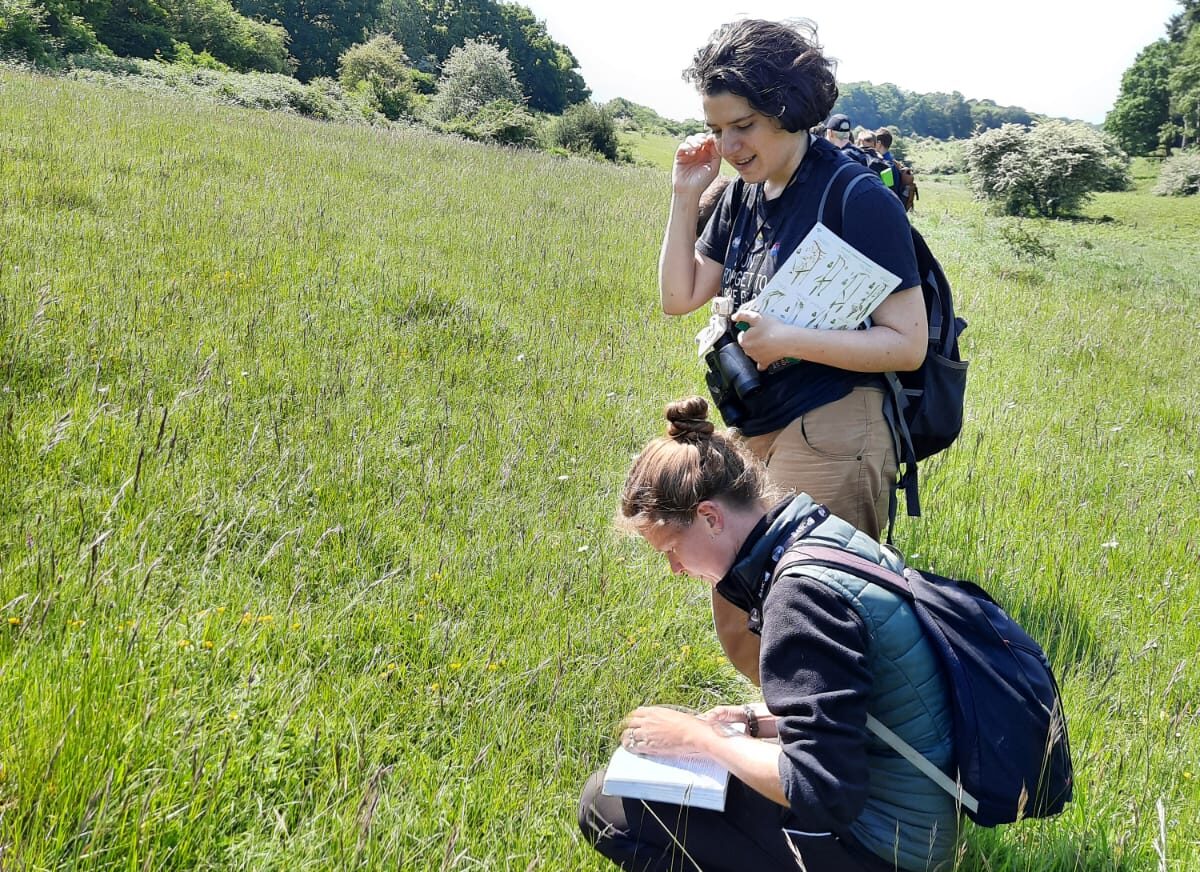Our Graduate Ecologist shares the inside scoop on their experience on prepping for a career in ecology. Passion for wildlife and conservation paired with enthusiasm to learn new skills gave them the advantage to land their dream job.
By Alisa Davies, Graduate Ecologist
'You do know that you could do this job too, right?' suggested a good friend, after I expressed how envious I was of his job as an ecologist for the tenth time.
Before this point, I hadn't seriously considered the possibility. I had always wanted to work to protect and restore wildlife in some way but my undergraduate degree was in psychology, and whilst I had recently completed a Masters in Conservation Science and Policy with a view to pursuing a nature-related career, I hadn't taken the module specific to ecological consultancy. I thought that others who had been aiming for this career through university would have gained far more competitive experience. In short, I thought I'd missed the boat. I didn't know then that four months later, I would be in the full swing of my first survey season as a graduate ecologist.
In applying for a career at MKA Ecology, I made sure to emphasise relevant transferable skills I had gained through university and from my previous role, such as report writing, collaborating with people in different organisations and fields, and experience with QGIS. I also used my CV and cover letter to draw different threads together to demonstrate a persistent interest in wildlife over time, even drawing on personal experiences such as my excitement in discovering signs of beaver on a holiday to Devon. If birding, mothing or wildlife watching is a major pastime for you, then don't underestimate the knowledge and relevant experience that this may have given you. I've found that whilst I still have a lot to learn, my baseline knowledge from being interested in the nature has provided an excellent foundation from which to jump off.
Of course, I recognised that I still had some discipline specific knowledge gaps, so I did my research. An understanding of relevant policy and legislation was my weakest area, so I signed on to an online training course that provided an introduction to UK policy for ecologists. This introduced me to some of the key Acts that form the basis for our work, particularly the Wildlife and Countryside Act 1981, Section 41 of the NERC Act 2006, and the Environment Act 2021. My botany, a major element of habitat classification, also needed some work. I found an excellent training video on YouTube which described the family approach to plant identification, bought a few field guides, and went out to identify plants and trees in my local park. In my interview, I was able to say exactly what species I had identified, some of the characteristics I had noticed and how I had improved in a short time. If I could go back to before my application, I would also have spent time learning some baseline information about key protected species, especially bats, which make up a large chunk of our work at MKA and are the wildlife that most people are likely to be least familiar with.
This research and preparation ultimately demonstrated what I believe was the most important thing: enthusiasm and a drive to learn. If you are just starting out as an ecologist, there will be an immense learning curve regardless of your previous experience, so willingness to throw yourself in to learning and taking the initiative to address your knowledge gaps is one of the most valuable things you can demonstrate.
I am incredibly grateful to my friend for giving me the push and confidence I needed to apply. Already, I have had the chance to work on a whole range of projects, and my understanding of the natural world and how we can protect it has grown exponentially. To anyone else who thinks that a career in ecology could be right for them, don't be afraid to take the leap.
Think you've got what it takes to join our team of ecologists? Apply here.


